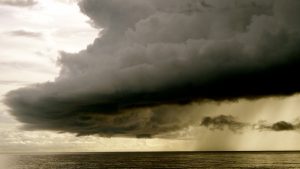Samoa has gone public with its bid to re-home the University of the South Pacific (USP) from Fiji, following more than a week of controversy surrounding Fiji’s decision to deport the university’s vice chancellor last Wednesday.
Samoa is already home to the USP School of Agriculture, but Samoan Prime Minister Tuila’epa Sa’ilele Malielegaoi said in a statement yesterday that Samoa was “100 percent willing” to move USP’s headquarters to Apia, the Samoan capital.
“Samoa is revered in the region as a leading player when it comes to national issues benefiting not just our country but the Pacific Forum family as a whole,” he said. “I think Samoa must take the lead when regional issues surface that will compromise the mutual benefits and interests for all Forum countries and their respective residents.”
Samoa’s Education Minister Loau Keneti Sio said earlier that while there are issues to work through in moving the campus, “they’re not insurmountable, and Samoa offered many advantages, including stability.”
Vice Chancellor Professor Pal Ahluwalia and his partner, both Australian citizens, were detained in their home late in the evening of February 3 by Fiji police and immigration officials, before being put on to a flight out of Fiji to Brisbane the next morning.
“I don’t believe I have done anything wrong,” Ahluwalia told ABC Radio last Thursday. “This is a classic case of beating the whistle-blower up… I’m the messenger who has been shot.”
Ahluwalia took up the position of vice chancellor just two years earlier. USP, considered a “jewel of the South Pacific,” has been racked with scandal for much of Ahluwalia’s term. Soon after he took up the post, he authored a report alleging widespread irregularities, including unwarranted salary increases and misappropriation of allowances.
The damning report was later leaked, pitting much of senior management at the university and the government against him. Ahluwalia later revealed that the Australian government had suspended payments to the university due to the same mismanagement issues that he had earlier drawn attention to.
The Fiji government released a statement shortly after news broke of Ahluwalia and his partner’s deportation, stating that “repeated breaches by both individuals of the stated provisions of Section 12 of the Immigration Act” were the reasons behind the expulsions.
“Their actions have clearly violated the terms of their work permits, resulting in their subsequent deportation,” the statement continued.
But Fiji’s opposition National Federation Party says Fiji’s credibility as a leading state in the region is at stake over the government’s actions. In a statement posted to Facebook, the NFP said they walked out of parliament after the government refused to answer their questions regarding Ahluwalia’s deportation.
“Fiji’s shaky reputation for basic human rights has once again been called into question all over the world… How can the Speaker say that these questions are not urgent or important?” the statement said.
Since the deportation, an outpouring of support has come from student and staff bodies at the university.
“We are horrified, shocked and disgusted at our vice chancellor being treated in such a way by the Fiji Government,” Elizabeth Read Fong, president of the association of USP staff, told ABC. “He remains our vice chancellor and we are doing everything we can to support him and to ensure that he can get back to being on the ground each day.”
In a joint statement, the association of USP staff and the USP staff union, described Ahluwalia’s deportation as a “Gestapo tactic.”
“The manner in which the VC and his wife were removed is a violation of human rights and due process,” the statement said.
The Fiji Trade Union Congress condemned the actions as “Government thuggery” that has “no place in democracy.”
In the face of national and international uproar, the Fiji government attempted to downplay the expulsion, with Attorney General Aiyaz Sayed-Khaiyum telling the Fiji Times that there is “no saga” and “no crisis” at USP.
Dr. Biman Prasad, the leader of the NFP, wrote yesterday that the government’s “growing arrogance is clearly a consequence of military support and the censorship of the media, which means the government maintains a firm grip on the country.”
“Also deafening is the silence from the USP’s major donors, Australia and New Zealand, the paragons of human rights and democracy in the region. Their statements have merely expressed concern about USP, while failing to condemn the treatment of the VC,” he continued.
In an interview with the Samoan Observer, Ahluwalia said he would be willing to accept an invitation to move to Samoa and run the university from its Apia campus.
“Yes, absolutely, I would be delighted to run USP from Samoa,” he said. “I have tremendous respect for the education minister and the prime minister [of Samoa].”
Nauruan President and USP Chancellor Lionel Aingimea has already said that the USP Council should agree to let Ahluwalia operate the university from any of the member countries.
USP has long been seen as a symbol of Pacific regionalism, given that its jointly owned by the governments of 12 Pacific island countries: The Cook Islands, Fiji, Kiribati, the Marshall Islands, Nauru, Niue, Samoa, the Solomon Islands, Tokelau, Tonga, Tuvalu, and Vanuatu.

































